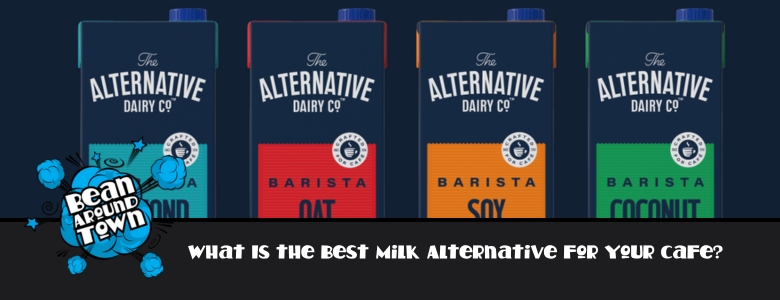Switching to a milk alternative? You’re not alone. Aussies are increasingly exploring plant-based milk options for various reasons – health, ethics, or simply a desire to try something new. But with so many choices, what is the best milk alternative? This guide explores the world of non-dairy milk, helping you find your perfect match.
Choosing isn’t just about taste. It depends on your nutritional needs and dietary restrictions.
Which Milk Alternative Reigns Supreme?
There’s no single “best” milk alternative. The ideal choice depends on individual needs and preferences. Everyone is different, so several factors contribute to a good decision.
Soy Milk: The Nutritional Powerhouse
Often considered the original milk substitute, soy milk boasts a nutrition profile similar to cow’s milk. This makes it a strong contender. A serving usually contains around 6 grams of protein, essential for muscle building and repair.
Soy milk is low in fat and a good source of calcium when fortified. Soybeans offer complete protein. Manufacturers often fortify soy milk with calcium and B vitamins for overall nutritional balance.
Almond Milk: Low-Calorie Champion
Almond milk is excellent for those watching their calories. This slightly nutty milk alternative is low in fat and carbs. However, most aren’t naturally high in essential nutrients, so choose fortified almond milk.
Almond milk is suitable for diets like keto. It contains heart-healthy fats, similar to olive oil. With naturally low calories and saturated fat, it’s popular for weight-conscious individuals.
Oat Milk: The Creamy Contender
Oat milk’s creamy texture makes it a barista favourite. It performs well in coffee, mimicking cow’s milk. Oat milk contains beta-glucans, a fibre known to reduce cholesterol.
Oat milk is gaining popularity. A study linked oat milk consumption with lower LDL cholesterol compared to other beverages.
Coconut Milk: Tropical Twist
Coconut milk adds a tropical touch. Its saturated fat content sets it apart. Coconut milk has more saturated fat than some plant-based milks. Coconut milk can be a good option for a vegan diet.
Rice Milk: Allergen-Free Champion
Rice milk is a top choice for nut allergies. It’s hypoallergenic, offering peace of mind. However, it often lacks the robust nutrients of other varieties unless fortified.
Look for rice milk fortified with essential vitamins and minerals. It is widely available at the grocery store.
Navigating the Nutritional Landscape

With many delicious options, nutritional differences are key. This table compares common plant-based milks and cow’s milk.
Milk Alternative | Protein (g) | Calcium (mg) | Fat (g) | Carbs (g) |
|---|---|---|---|---|
Soy Milk (unsweetened, fortified) | 6-8 | 300 | 4 | 7-12 |
Almond Milk (unsweetened, fortified) | 1-2 | 300 | 2.5 | 1-2 |
Oat Milk (unsweetened, fortified) | 2-4 | 350 | 4.5 | 14-20 |
Coconut Milk (unsweetened, carton) | 0-1 | 450 | 4-5 | 2-7 |
Rice Milk (unsweetened, fortified) | <1 | 250 | 0.5-1 | 20-25 |
Cow’s Milk (whole) | 8 | 275 | 8 | 12 |
These values are averages; specific brands may vary. Check the nutrition label for accurate information.
The Australian Dietary Guidelines recommend 2-3 daily serves of dairy or substitutes. This helps maintain good nutrition.
Considering What is The Best Milk Alternative for You

Oat milk has become a popular milk alternative. Baristas and younger adults particularly enjoy it. Many milk substitutes are naturally low in protein and calcium.
These include, oat, coconut, rice, and macadamia milk. Make sure your chosen milk is fortified with essential vitamins and minerals. This helps maintain the necessary intake if replacing dairy entirely. Look for flavoured varieties at the grocery store to enjoy diverse milk options.
The “best” milk alternative depends on individual needs, values, and tastes. Consider various factors, such as whether you are lactose intolerant or following a vegan diet.
FAQs about what is the best milk alternative
What is the healthiest milk alternative?
There’s no single “healthiest” milk alternative. Soy milk closely matches cow’s milk nutritionally. It provides good protein and is often fortified.
What is the best-tasting milk alternative?
Taste preference is key. Popular brands include Bonsoy, Oatly, Milk Lab, and Australian Dairy Co. Consider the milk’s taste in different beverages and recipes. Different plant-based milks have neutral flavours, making them highly palatable.
Is almond or oat milk better for you?
Almond milk is lower in calories and carbs, suitable for keto and paleo diets. Oat milk offers soluble fibre, promoting heart health. Both are good choices with different benefits.
Which plant milk is healthiest?
Healthiness depends on your lifestyle and dietary preferences. Each milk alternative has its own nutritional profile. Cashew milk, for example, contains unsaturated fats, but also has a higher fat content than other options.
Check nutrition profiles. Choose a milk that supports your health goals. This might include increasing iron, maintaining healthy fats, or getting enough calcium.
Conclusion
So, what is the best milk alternative? The best choice depends on your priorities. Whether you prefer soy milk’s protein, almond milk’s low calories, or oat milk’s creaminess, there’s a perfect plant-based milk for you. Some milk substitutes are naturally higher in certain nutrients. Ground almonds create almond milk, while oat milk oat milk comes from oats.
No single milk suits everyone. Choose the milk that best reflects your lifestyle. Consider the factors discussed to find your perfect milk alternative. You can now confidently choose the right plant-based milk.






